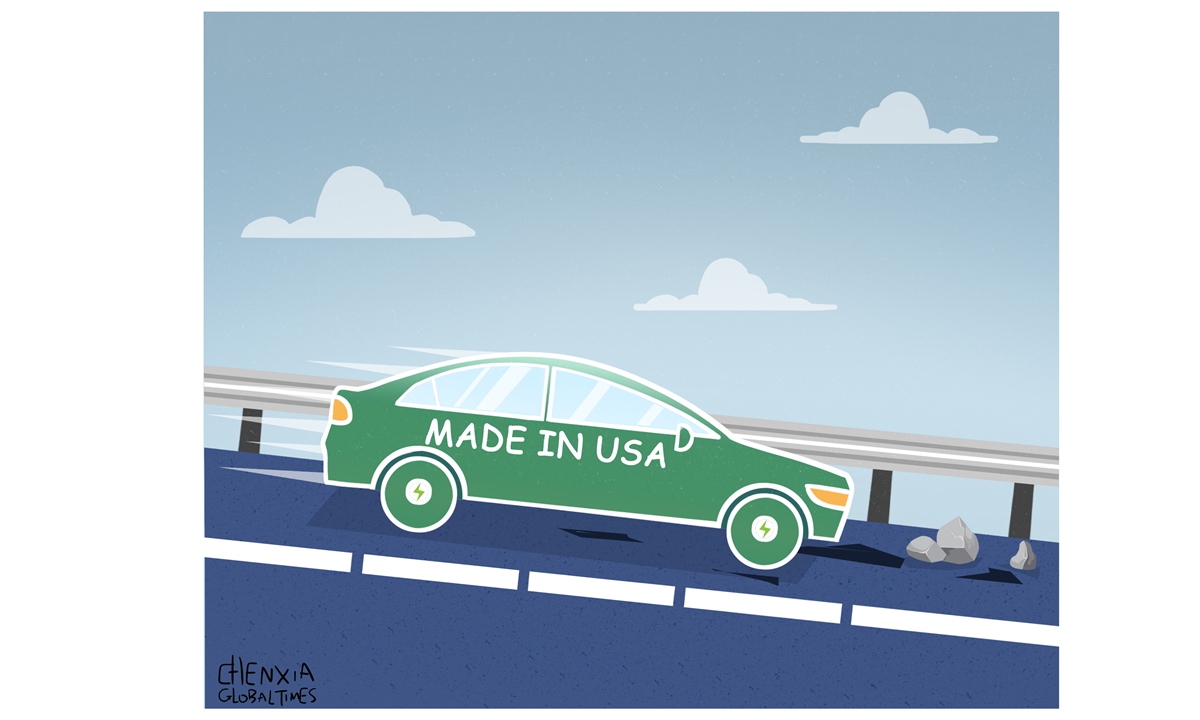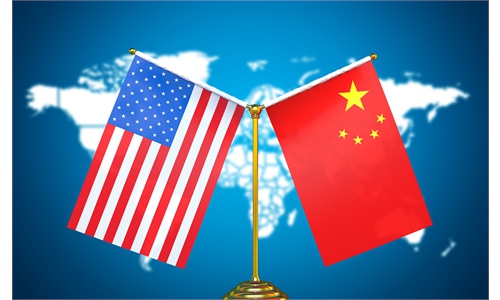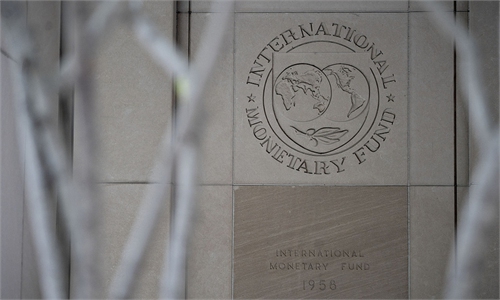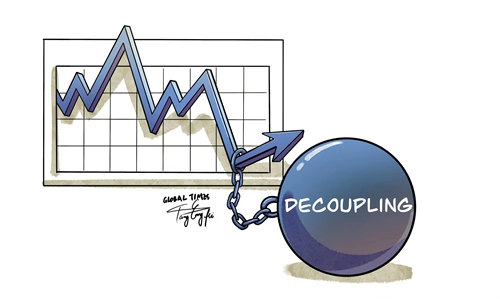
Illustration: Chen Xia/Global Times
Despite the Biden administration's efforts to adopt various measures and stimulus policies to promote the domestic production of electric vehicles (EVs) and other green technologies, Washington's political rhetoric of reducing dependence on China seems increasingly at odds with its ambitious industrial goals.A Bloomberg opinion piece entitled "China Finds a Place in the US 'Battery Belt'" said on Monday that Chinese EV battery giant Contemporary Amperex Technology Co (CATL) and US carmaker Ford Motor are considering building a battery manufacturing plant in Virginia or Michigan, which, however, stands in sharp contrast to the US' political hype of economic "decoupling" from China. It concluded that despite the US splashing billions of dollars, the road ahead for accelerating EV adoption in the US may still be bumpy amid the current political atmosphere.
If anything, the article actually points to a prevailing worry that the political environment in the US, which contains various anti-China noises advocating policy barriers and trade disputes against Chinese supply chains, may risk hindering or derailing normal cooperation of industrial chains, such as the one between Ford and CATL.
Such concern now looks justified, especially at a time when Washington's efforts to promote clean-energy adoption is increasingly entangled with cutting dependence on Chinese supply chains.
In terms of the global EV industrial chain, the US may possess some high-end technologies, but it is impossible for the US to take control of the whole industrial chain. Notably, China has emerged at the forefront of global EV manufacturing by gaining its own advantages and competitive edges in some medium and low-end industrial chains, such as the battery manufacturing. In this sense, relevant Chinese technology and companies are essential for the US to keep its supply chain running smooth if the US wants to build up its own EV industrial chain at home.
Yet, instead of providing good investment environment for Chinese companies, the US has been trying to squeeze Chinese companies out of the supply chain, which will only lead to more barriers to the development of its own EV industry.
For instance, at the CES consumer electronics event in Las Vegas on Friday, US Energy Secretary Jennifer Granholm gave a presentation outlining the Biden administration's clean energy push, while emphasizing the need to wrangle the EV battery supply chain out of China's control, Nikkei Asia reported.
Indeed, the development reveals the inescapable conflict in the US in terms of industrial policy. On the one hand, the Biden administration wants to encourage domestic and overseas companies to move production to the US by adopting various stimulus measures like subsidies in the Inflation Reduction Act, so as to facilitate the return of manufacturing jobs and revitalize American manufacturing. On the other hand, from the perspective of the strategic competition with China, US politicians want to curb the presence of Chinese companies in supply chains across key industries.
Fundamentally speaking, Washington's reluctance to recognize that the Chinese and US industrial chains are highly complementary is actually an important source of contradiction in the US industrial policy. And prioritizing politics over actual industrial development will not only harm normal cooperation of companies, but also disrupt the layout of industrial development. In the case of the potential cooperation between Ford and CATL, even if they figure out a structure to allow them to circumvent policy barriers, the efficiency of the supply chain cooperation may still be weakened.
For Chinese companies eyeing to invest in the US, they should be advised about caution toward the risks surrounding the US political environment especially when it comes to high-tech sectors where China has leading edges. Some Biden administration officials are reportedly pushing for the sale of TikTok's US subsidiary, which represents unique Chinese algorithmic technology. Such political headwinds TikTok has been facing are sufficient enough to raise alarm about technology robbery, which is also why China needs to be wary of the US plunder of Chinese companies investing in the US.



